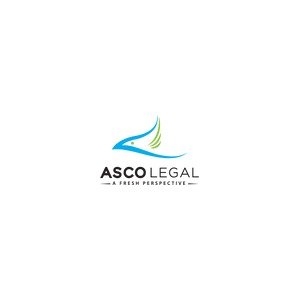Best Structured Finance Lawyers in Auckland
Share your needs with us, get contacted by law firms.
Free. Takes 2 min.
List of the best lawyers in Auckland, New Zealand
About Structured Finance Law in Auckland, New Zealand
Structured finance is a highly specialised area within financial law that focuses on complex financial transactions typically involving securitisation, derivatives, and structured debt instruments. In Auckland, structured finance law governs how these sophisticated financial products are developed, offered, and managed. The practice often involves collaboration between financial institutions, corporations, and investors to create tailored funding solutions that meet specific risk and return objectives. Legal advisors in this field play a vital role in ensuring compliance with both domestic and international regulations and in facilitating transactions that optimise financial outcomes while managing associated legal risks.
Why You May Need a Lawyer
Structured finance can be intricate, involving multiple parties, bespoke contractual arrangements, and significant regulatory oversight. You may need a lawyer in situations such as:
- Structuring or participating in securitisation transactions
- Issuing or investing in mortgage-backed or asset-backed securities
- Entering complex loan syndications or collateralised debt arrangements
- Negotiating derivatives contracts connected to structured products
- Restructuring existing structured finance arrangements
- Managing default or enforcement scenarios within structured transactions
- Navigating regulatory changes affecting structured products
- Ensuring compliance with disclosure, reporting, and documentation standards
- Managing disputes and litigation relating to structured finance agreements
- Understanding tax implications of complex financing structures
Legal advice can help identify risks, navigate compliance, and safeguard your interests whether you are an issuer, investor, sponsor, or servicer in the Auckland market.
Local Laws Overview
Structured finance transactions in Auckland must comply with both New Zealand laws and, often, relevant cross-border regulations. Key aspects include:
- Financial Markets Conduct Act 2013: Governs the offering, management, and disclosure requirements for financial products and services, including those within structured finance.
- Companies Act 1993: Sets out company law requirements, which underpin many special purpose vehicles (SPVs) used in structured finance transactions.
- Personal Property Securities Act 1999: Deals with the registration and priority of security interests, vital for securitisation structures.
- Reserve Bank of New Zealand Regulations: There may be specific directives for banking institutions engaging in structured finance activities, especially regarding prudential standards and reporting.
- Anti-Money Laundering and Countering Financing of Terrorism Act 2009: Imposes obligations on parties dealing with structured finance products to prevent misuse for illicit purposes.
- Tax Legislation: The structuring of transactions must consider GST, income tax, and other relevant financial taxes.
Given the overlap of various legislations and the international nature of many financial products, local legal expertise is essential for structured finance transactions in Auckland.
Frequently Asked Questions
What is structured finance?
Structured finance is a segment of finance that involves the use of complex financial instruments and arrangements, such as securitisation or derivatives, often tailored to meet specific needs of issuers and investors.
Who typically participates in structured finance transactions?
Participants can include banks, investment firms, corporations, government entities, investors, and special purpose vehicles (SPVs) set up to facilitate specific transactions.
What legal documents are commonly used in structured finance deals?
Key documents include offering memoranda, trust deeds, security agreements, servicing agreements, swap agreements, and legal opinions on enforceability and compliance.
How is securitisation regulated in Auckland, New Zealand?
Securitisation is primarily regulated under the Financial Markets Conduct Act 2013, which sets disclosure and conduct standards, and the Personal Property Securities Act 1999 for the registration of security interests.
What are the most significant risks in structured finance?
Risks include credit risk, legal and regulatory risk, operational risk, market risk, and counterparty risk. Legal advice reduces exposure to these issues.
How can a lawyer help with structured finance transactions?
Lawyers advise on deal structuring, draft and review documentation, ensure regulatory compliance, register security interests, and assist in dispute resolution if issues arise.
Are there local rules for foreign entities engaging in structured finance in Auckland?
Yes, foreign entities must comply with local laws, including registration requirements, disclosure rules, and potentially consent from regulatory bodies depending on the nature of the transaction.
What role does the Reserve Bank of New Zealand play?
The Reserve Bank sets prudential requirements for financial institutions, monitors systemic risk, and may issue guidance relevant to structured finance, especially involving banks and non-bank deposit takers.
Can structured finance deals be cross-border?
Yes, many structured finance transactions in Auckland involve international parties and require compliance with laws in multiple jurisdictions, making legal guidance essential.
How long does a typical structured finance transaction take to complete?
The timeframe can vary widely depending on transaction complexity, regulatory approvals, and the due diligence process but usually ranges from several weeks to a few months.
Additional Resources
If you need more information or assistance, consider consulting the following resources and bodies specialising in finance and financial regulation in Auckland and New Zealand:
- Financial Markets Authority (FMA) - Oversees conduct and compliance for financial services and products
- Reserve Bank of New Zealand (RBNZ) - Regulates banks and systemic financial stability
- Ministry of Business, Innovation and Employment (MBIE) - Provides guidance on business, companies, and financial sector regulations
- New Zealand Law Society - Directory of specialist financial services lawyers
- Inland Revenue Department (IRD) - Tax information and rulings relevant to structured finance products
- Commerce Commission - Regulator for fair trading and competition in financial services
Next Steps
If you are considering or involved in a structured finance transaction in Auckland, it is highly recommended to seek specialist legal advice. Start by:
- Identifying the specific needs and objectives of your transaction
- Gathering all relevant financial and business documentation
- Contacting a law firm or independent lawyer with expertise in structured finance
- Discussing your goals, potential risks, and regulatory requirements with your legal advisor
- Staying informed about regulatory changes that may affect your transaction
A structured finance lawyer can guide you through the process, help you comply with all legal and regulatory standards, and work to protect your interests at every stage of the deal.
Lawzana helps you find the best lawyers and law firms in Auckland through a curated and pre-screened list of qualified legal professionals. Our platform offers rankings and detailed profiles of attorneys and law firms, allowing you to compare based on practice areas, including Structured Finance, experience, and client feedback.
Each profile includes a description of the firm's areas of practice, client reviews, team members and partners, year of establishment, spoken languages, office locations, contact information, social media presence, and any published articles or resources. Most firms on our platform speak English and are experienced in both local and international legal matters.
Get a quote from top-rated law firms in Auckland, New Zealand — quickly, securely, and without unnecessary hassle.
Disclaimer:
The information provided on this page is for general informational purposes only and does not constitute legal advice. While we strive to ensure the accuracy and relevance of the content, legal information may change over time, and interpretations of the law can vary. You should always consult with a qualified legal professional for advice specific to your situation.
We disclaim all liability for actions taken or not taken based on the content of this page. If you believe any information is incorrect or outdated, please contact us, and we will review and update it where appropriate.

















